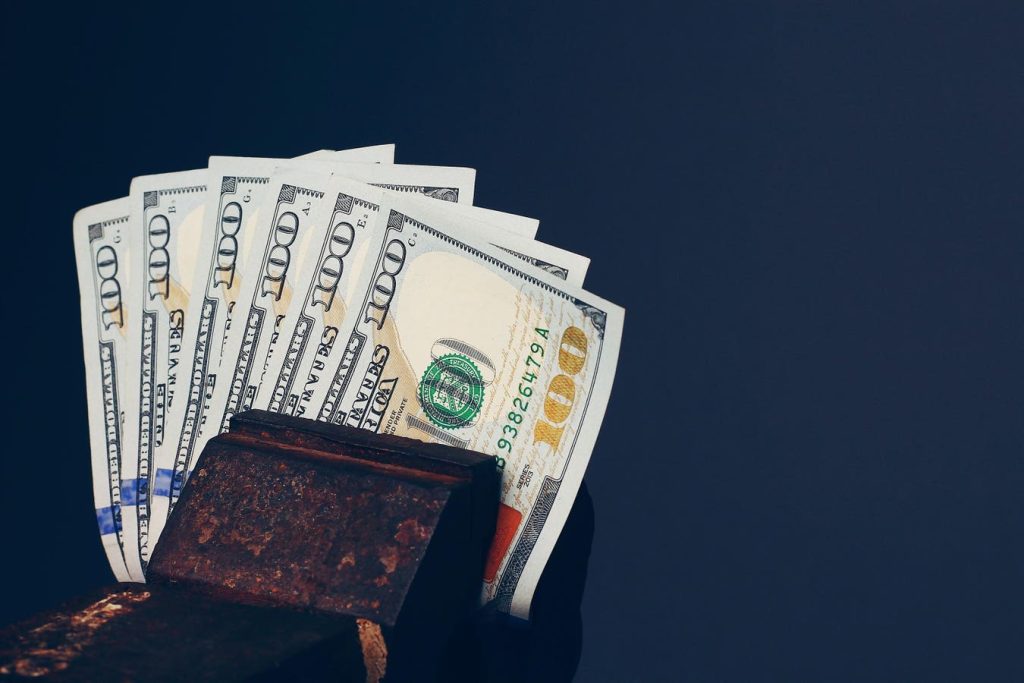US dollars sandwiched in an old vice, toned
If you haven’t been able to keep up with the twists and turns of financial markets in the last couple of weeks, since Donald Trump announced additional tariffs, then said he’d hold off on the highest tariff levels on virtually all countries, then announced even higher tariffs on China, it’s not you.
And it’s not a cold and calculated set of financial calculations and strategies. What you’re seeing is a global manifestation of humanity’s psychological struggle. It’s the battle between emotions of fear and trust.
The economic idea that people are purely rational, self-serving beings has been undermined by broad research over decades into psychology and behavioral economics. If people were really that rational, you wouldn’t find that many individuals would, for example, buy stocks when their prices were high and then sell them off when the share values started dropping sharply.
There is greed involved. People invest money to make even more money as they do other things. That requires trust. They listen to advisers. They check financial data about companies and assets like Treasury bonds and notes. The sources of information can be bad.
There’s the famous line from Joseph P. Kennedy, the patriarch of the political dynasty, that came from his experience around the time of the 1929 market crash: “When the time comes that a shoeshine boy knows as much as I do about what is going on in the stock market, tells me so, and is entirely correct, there’s something wrong with either me or the market, and it’s time for me to get out.”
A bad source doesn’t need to be a single person. It can be the environment at a given time. A person investing has to stand between two states — trust in information and the financial systems, and fear that things are going wrong and threaten one’s financial standing. When conditions provide comfort and rationalization for the trust, you get booms. However, once results begin to turn, the investors, who are ultimately regular people, get scared and look for safety.
Usually, there is a regular path between extremes. Stock and Treasury securities prices typically move inversely to one another. When times seem good, people invest in stocks because they have historically provided an excellent return over time. As skies turn gray, investors often will take part of their money and put it into bonds that have promised guaranteed results at known interest rates.
But it all depends on trust. Investors for decades have purchased U.S. Treasury instruments because they trusted the country would always be good for its debts. The popular phrase is “full faith and credit.”
The faith on the part of investors, whether individuals, corporations, or nations, is what lets them feel comfortable investing in the U.S.
Many are currently pointing their fingers at Donald Trump because the uncertainty of tariffs is being blamed for the potential for reignited inflation and perhaps even a recession. Announcements of higher tariffs send stocks spiraling downward. But then, prices of Treasurys also took big hits, which is why their yields rose. The less perceived value the instruments have, the more interest investors expect to be offered before buying them.
Blaming Trump as the single cause of these problems, even though his approaches to trade and negotiation have reduced faith and scared investors. The foundation the administration stands on is a huge amount of borrowing. The U.S. is responsible for more than $1 trillion in interest payments every year.
There are economists and other holders of theories like modern monetary theory who say a country that issues debt in its own currency can’t really get into trouble, at least if they take action to keep inflation under control.
But that requires Congress to take appropriate and rapid action. That’s a group of people who can’t regularly manage to set a budget.
And so, investors have become scared that the U.S. could blow up its economy, take much of the rest of the world’s economic interests with it, and behave in enough of an irresponsible way that maybe the full faith and credit phrase doesn’t mean all that much.
The scary question is whether the U.S. has pushed its luck too far and that Treasury debt no longer seems like a safe haven for investors.

